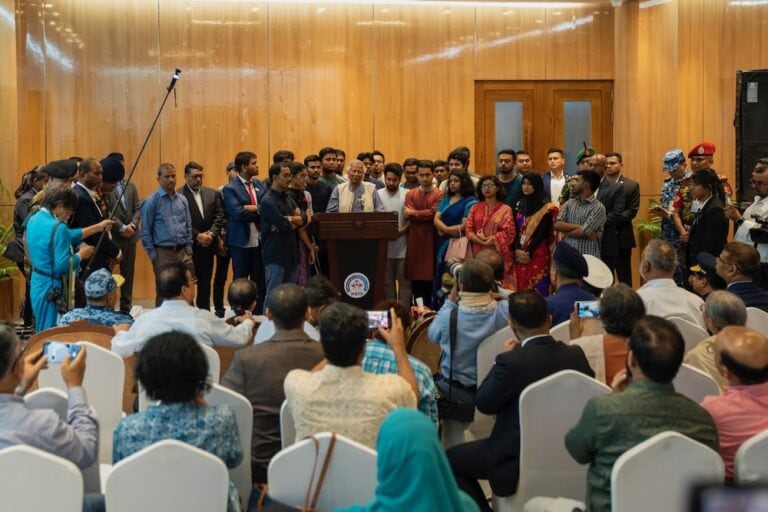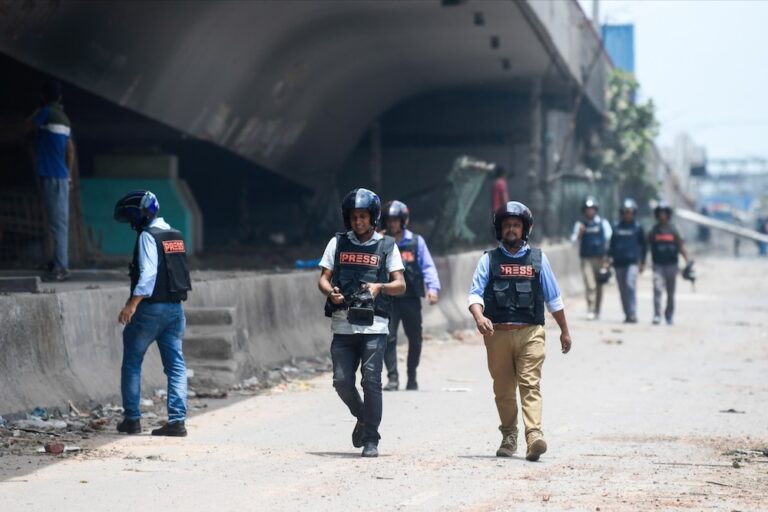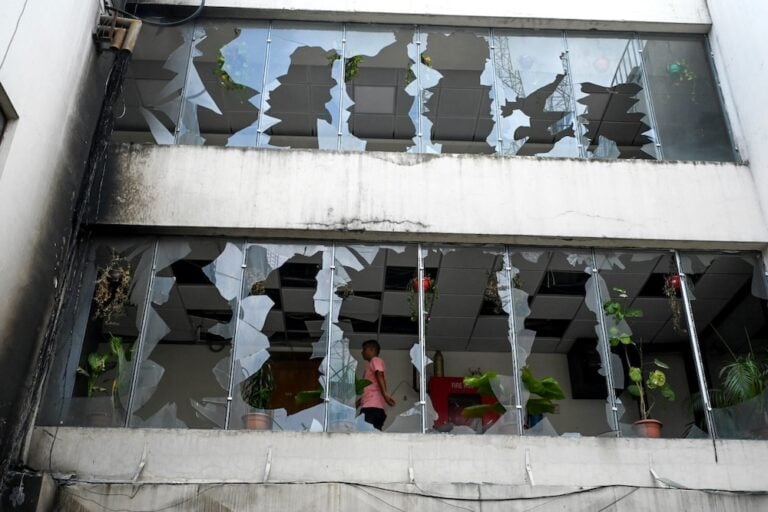(CJFE/IFEX) – The following is an 11 January 2007 CJFE media release: Canadian Journalists for Free Expression concerned about media restrictions in Bangladesh (Toronto, January 11, 2007) – President Iajuddin Ahmed of Bangladesh declared a nationwide state of emergency on Thursday evening, suspending fundamental rights including the right to free expression. He then stepped down […]
(CJFE/IFEX) – The following is an 11 January 2007 CJFE media release:
Canadian Journalists for Free Expression concerned about media restrictions in Bangladesh
(Toronto, January 11, 2007) – President Iajuddin Ahmed of Bangladesh declared a nationwide state of emergency on Thursday evening, suspending fundamental rights including the right to free expression. He then stepped down as leader of the interim government.
CJFE has seen the large impact that a state of emergency can have on press freedom. Already, private satellite television channels have been ordered to suspend broadcasts of news programs and talk shows; they are allowed to relay only news run by the state television station. All eight independent news stations have suspended broadcasts.
One online newspaper, http://www.bdnews24.com , is still publishing information, and it appears that no newspapers have been officially suspended yet. Newspapers were, however, told not to publish articles critical of the government or that could be deemed inflammatory.
Toronto-based journalist Saleem Samad from Bangladesh, who is a member of the CJFE group Journalists in Exile, said that he is “very concerned that journalists will be subjected to harassment.” He added that “in a state of emergency the police will be able to detain a person without a warrant for a minimum of 90 days.”
Bangladesh’s largest newspaper, “The Daily Star”, whose tag line is “Committed to People’s Right to Know”, has removed all articles from its website. In their place is a notice titled “Restricted Rights” that states: “Under a state of emergency the state will not be restricted by the constitutional provisions for freedom of movement, freedom of assembly, freedom of association, freedom of thought, conscience and speech, freedom of occupation and rights to property.” It goes on to list various restrictions as set out in the Constitution.
There has been mounting political violence in Bangladesh in advance of the national elections scheduled for January 22. The decree was announced by state television just a few hours after the United Nations suspended its technical support for the upcoming elections due to concerns about their legitimacy.
In the run-up to the elections there had been reports of threats and attacks against journalists throughout Bangladesh. Attacks had increased notably since the interim government took power in late October 2006. Incidents included the severe beating of veteran reporter Hasibur Rahman Bilu, and death threats against several other journalists. Some of the attacks were reportedly carried out by security forces.
Canadian Journalists for Free Expression (CJFE) is an association of more than 300 journalists, editors, publishers, producers, students and others who work to promote and defend free expression and press freedom in Canada and around the world.


